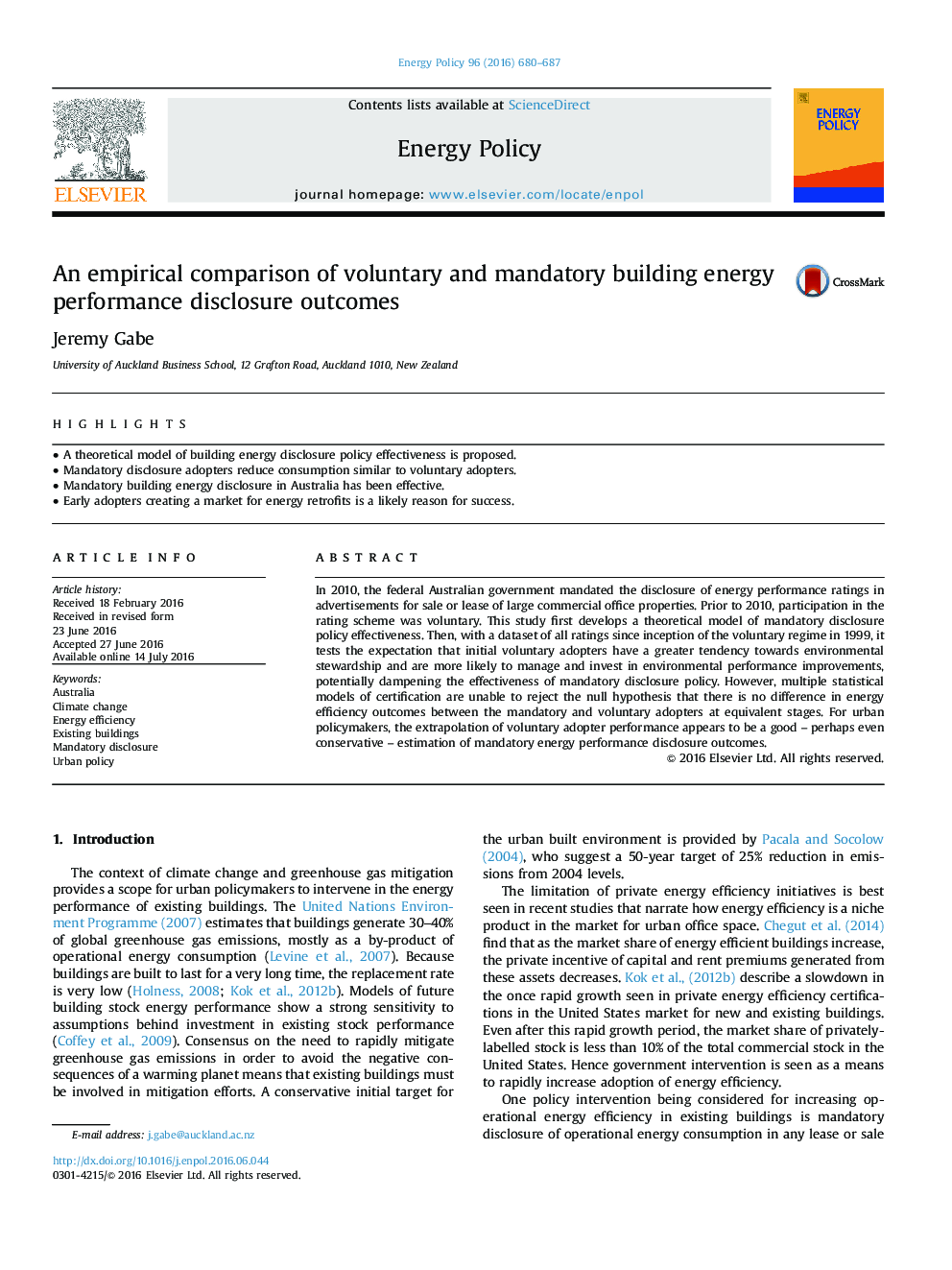| Article ID | Journal | Published Year | Pages | File Type |
|---|---|---|---|---|
| 7398938 | Energy Policy | 2016 | 8 Pages |
Abstract
In 2010, the federal Australian government mandated the disclosure of energy performance ratings in advertisements for sale or lease of large commercial office properties. Prior to 2010, participation in the rating scheme was voluntary. This study first develops a theoretical model of mandatory disclosure policy effectiveness. Then, with a dataset of all ratings since inception of the voluntary regime in 1999, it tests the expectation that initial voluntary adopters have a greater tendency towards environmental stewardship and are more likely to manage and invest in environmental performance improvements, potentially dampening the effectiveness of mandatory disclosure policy. However, multiple statistical models of certification are unable to reject the null hypothesis that there is no difference in energy efficiency outcomes between the mandatory and voluntary adopters at equivalent stages. For urban policymakers, the extrapolation of voluntary adopter performance appears to be a good - perhaps even conservative - estimation of mandatory energy performance disclosure outcomes.
Related Topics
Physical Sciences and Engineering
Energy
Energy Engineering and Power Technology
Authors
Jeremy Gabe,
